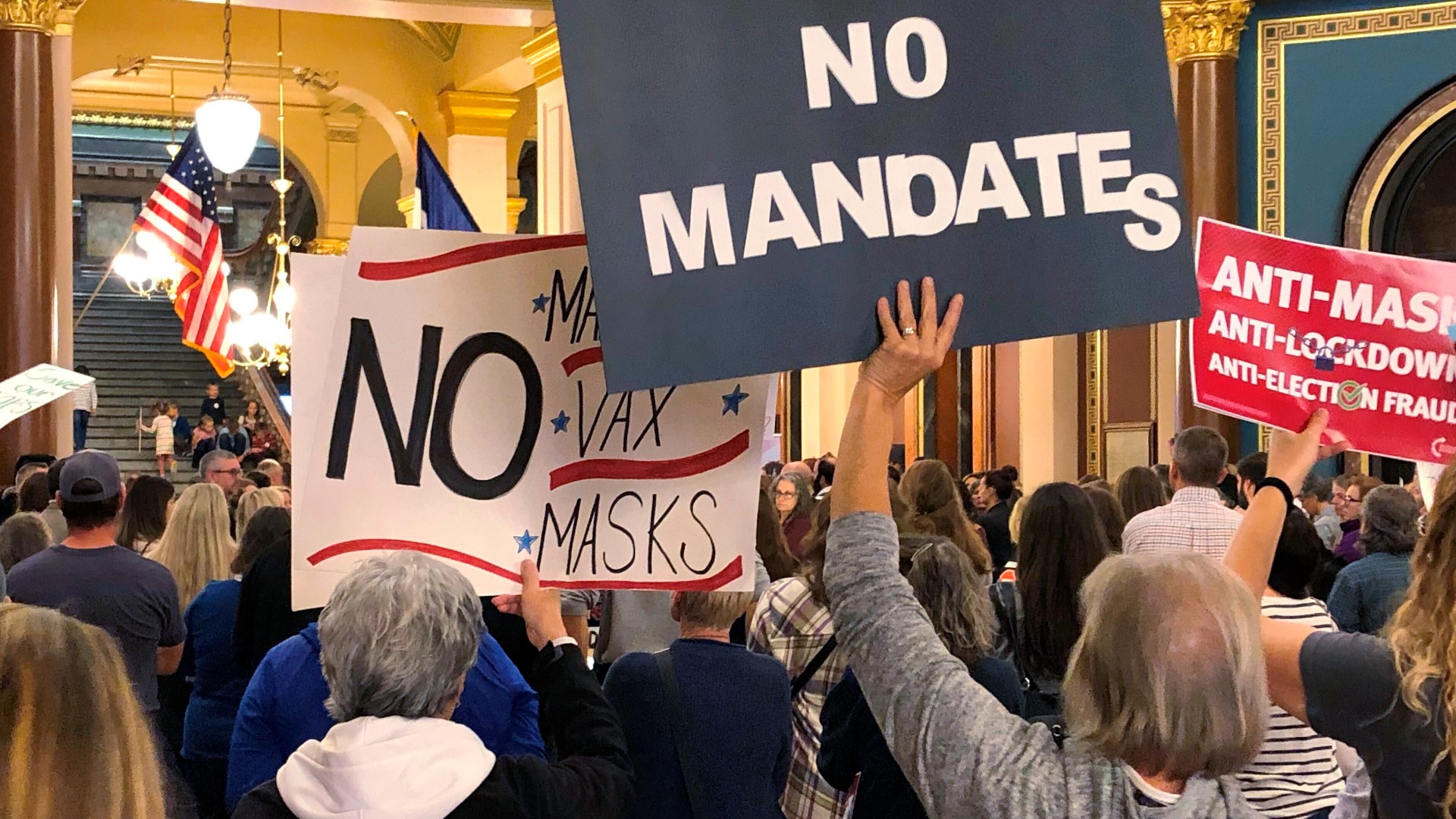DES MOINES, Iowa — Gov. Kim Reynolds on Friday signed a bill into law allowing employees to seek medical or religious exemptions for vaccine mandates and let them apply for unemployment benefits if they are terminated for refusing to get vaccinated.
Advocates for businesses in Iowa say this legislation complicates issues for employers, especially with a federal vaccine mandate looming.
"What is clear is that whichever path is taken it'll be higher costs for Iowa employers," said JD Davis, who works as the Vice President of Public Policy for the Iowa Association of Business and Industry.
The federal mandate, which is anticipated to be officially unveiled as early as next week, would require employers with at least 100 employees to adopt a vaccine mandate.
"As it stands today there'll be a $14,000 penalty for violating the terms of those mandates," Davis said. "There is legislation in Congress that would change that to a $700,000 fine per occurrence."
"And so the concern, I think, from the business community is how will this state law interact with a federal mandate," said Iowa Business Council Executive Director Joe Murphy.
Another big question for employers: How will this law impact unemployment?
According to documents released by the Legislative Services Agency, only 12.2% of the Coronavirus Relief Fund earmarked for unemployment currently remains.
"Businesses are responsible for keeping the unemployment trust fund full," Davis told Local 5. "So even if you're a compliant business, if people are sent to the trust fund for claims, you will see an increase in your employment taxes to keep that fund full."
On top of potentially higher costs for business, experts say this could also mean fewer employees to keep their businesses running.
"We're in the midst of the most acute workforce shortage that we've seen in a generation," Murphy said. "And we need to be making sure that everybody has access to the to the workforce right now into job opportunities. We should be incentivizing work."
"We should be trying to make sure that as many people as possible can participate in in our workforces."
The U.S. Department of Labor reported Friday that wages and salaries saw a higher spike in the three-month period ending in September than any such time period in the past 20 years.

